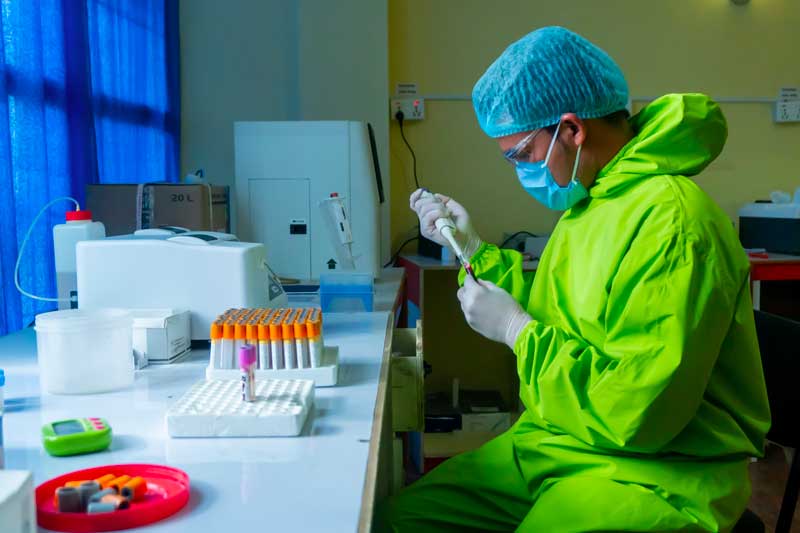When we think of healthcare workers, we often think of people working in hospitals, as these medical facilities are on everyone's top of mind for offering diverse services, including emergency care for all members of the family. Even though there are many other settings where healthcare workers practice their occupations (clinics, nursing homes, etc.) hospitals remain the main place where many of them want to work due to the prestige, career advancement opportunities, and experience they can gain.
For people in the healthcare field who are looking for employment in hospitals but are not sure of what positions may suit them best, in this article we talk about the top hospital jobs for healthcare workers, including doctors and nurses, but also lab technicians, physical therapists, and PSWs.
Hospital settings offer a wide variety of rewarding career options to explore for healthcare workers. There are positions that involve working directly with patients, and others that are designed to provide support to healthcare experts, like the case of medical aides and assistants. There are also hospital jobs that just involve working with samples in a laboratory or with medications and prescriptions in a pharmacy department. Ultimately, there’s a role for everyone inside a hospital.
One of the best aspects of working in a hospital is being part of a large group of health experts from all medical fields that often collaborate in multidisciplinary teams to help patients recover their health. These professionals consult each other, complement their knowledge with each other’s expertise, and come together to diagnose difficult health problems and come up with treatments.
Read More : Top Careers in Long Term Care for 2022
Nurses in this category are required to have a four-year bachelor’s degree in nursing and, as a result, have extensive knowledge in their field, which allows them to help patients with complex health issues. In hospital settings, RNs are usually assigned to emergency rooms or work in their areas of expertise, such as neonatal care, gerontology, among others.
Nurses in this category have a higher level of education and experience, which is why they are entitled to diagnose and treat illnesses on their own, as well as prescribe medications, request tests, and even perform certain procedures. Some NPs become consultants and researchers within their fields and are known for their findings and contributions to their practice.
Surgical doctors specialize in diagnosing and treating conditions that require surgery. Many of them participate in preoperative, operative, and postoperative patient care, and in some cases, they can continue their education to become surgical specialists.
Doctors within this career are the ones who administer the drugs that prevent patients from feeling pain or any sensation during surgery. In addition, anesthesiologists are responsible for the well-being of patients before, during, and after surgery.
Healthcare workers with this role are the ones who determine which form of medication to administer to each patient, with input from doctors, nurses, and other healthcare professionals. Pharmacists who work in hospitals are known to monitor the effects of the medications they prescribe and advise patients about the desired and undesired effects of the drugs prescribed to them.
Specialists in this field conduct lab tests to help doctors diagnose diseases or illnesses and determine treatment options. In hospital settings, laboratory technicians often collect medical samples such as body fluids and blood, following the indications of physicians from multiple areas.

PSWs don't always work in hospitals, but this is changing. When they do, they are usually assigned to intensive care units (ICU), cardiac care units (CCU), rehabilitation, ERs, or dialysis areas. They can also work in surgical departments, caring for patients with dementia or severe confusion.
These healthcare workers are essential for the recovery of many patients. They are the ones who teach patients how to be more independent when they have limited mobility. For instance, they help them with activities, such as rolling in bed, standing, and walking.
Hospital workers are not always part of the healthcare field, even if they work in these healthcare facilities. There are many support roles in hospitals that anyone with the right experience can perform, and that benefit from the same perks as those who are involved in healthcare, such as stability, competitive salaries, pension plans, health insurance, sick days, and more.

Some of the most popular non-medical hospital jobs are medical records clerks, social workers, human resources managers, staffing and scheduling clerks, security guards, janitors, cooks, administrative assistants, accountants, and many other roles in areas like business, communications, sanitation, and more.
Non-medical hospital workers don't work directly with patients, but they certainly play an essential role in hospital operations.
If you liked this article about hospital jobs and would like to share your thoughts on it, leave us a comment below. You can also interact with us on social media. Thanks for reading!
We'll keep you updated on all new application updates and features!